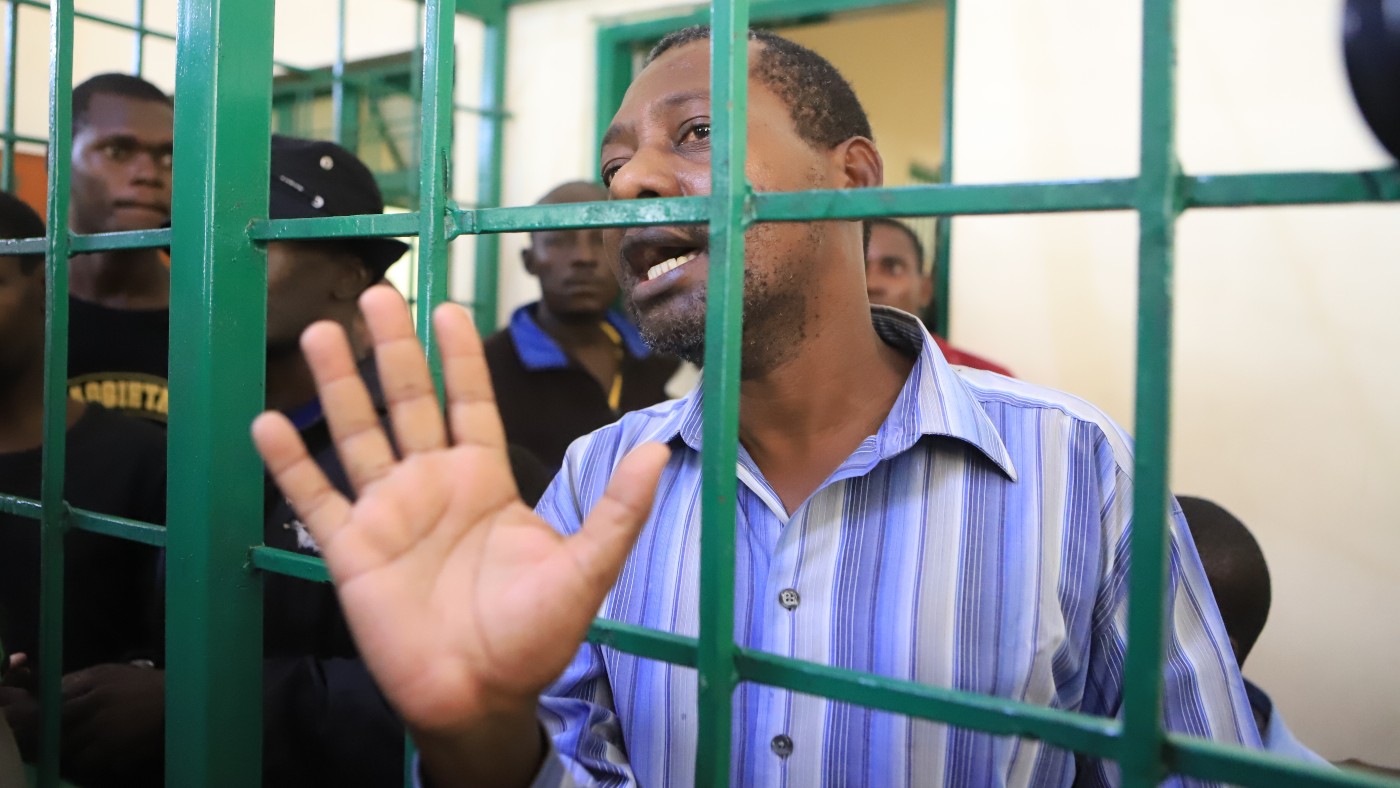Kenya’s doomsday death cult: the trial of Paul Mackenzie
More than 300 bodies discovered in mass graves after claims a cult leader allegedly told his followers to starve themselves to death

A free daily email with the biggest news stories of the day – and the best features from TheWeek.com
You are now subscribed
Your newsletter sign-up was successful
Paul Mackenzie is “public enemy number one” in Kenya, said Le Monde’s Noé Hochet-Bodin, and the reason for the description is as tragic as it is terrifying.
Mackenzie, a taxi driver turned religious leader, is standing trial on charges of terrorism, child trafficking and inciting followers to starve to death. So far, more than 300 bodies have been found in mass graves, with the number expected to rise as “more exhumations are planned”, said The Associated Press.
Kenyan police received a tip-off that dozens of people were starving to death after their pastor told them this was “the way to meet Jesus”, the news agency added. However, officials were unprepared for the horrific scene they found at the Shakahola forest near the coastal resort of Malindi.
The Week
Escape your echo chamber. Get the facts behind the news, plus analysis from multiple perspectives.

Sign up for The Week's Free Newsletters
From our morning news briefing to a weekly Good News Newsletter, get the best of The Week delivered directly to your inbox.
From our morning news briefing to a weekly Good News Newsletter, get the best of The Week delivered directly to your inbox.
“Children were targeted as the first to be starved to death,” reported the BBC. They were ordered to “fast in the sun so they would die faster”. The children were followed by women and men. Official autopsies showed signs of death by “starvation, suffocation and beatings”.
The story of Mackenzie’s Good News International Church began in 2002 with a small, unsuspecting congregation in a “stone courtyard opposite a Catholic primary school in Malindi”, said The New York Times. It has now culminated in “one of the worst cult-related disasters in recent history”, according to Al Jazeera.
Mackenzie was able to cultivate followers through his preaching at church and on his own television channel, Times TV. It was his doomsday rhetoric that drew the most attention, often inspired by the Book of Revelation in the New Testament, which speaks about the day of judgement and the end of the world for Christians.
He preached stark warnings about “an omnipotent satanic force” that he claimed is at play in the “highest echelons of power around the world”, the BBC said. It is alleged his followers were told the world was coming to an end on 15 April, and that they were instructed to take their own lives to become “the first to go to heaven”, Al Jazeera reported.
A free daily email with the biggest news stories of the day – and the best features from TheWeek.com
Mackenzie, who closed the Good News International Church and his TV channel in 2019, “denied he had forced his followers to starve themselves”, the BBC reported. His mother, Anastacia Mwele Mackenzie, pleaded the innocence of her “obedient and very generous” son when speaking to the Nation, while Robert Mbatha told the newspaper he “still cannot fathom” the accusations levelled against his brother.
The trial against Mackenzie continues. Should he be found guilty, he may go down in history as one of the worst cult leaders in the world, “joining the likes of Jim Jones, Marshall Applewhite, Shoko Asahara and David Koresh”, said the Daily Mail.
However, religious groups “with a cultic flavour” are not new in Kenya, Fathima Azmiya Badurdeen wrote for The Conversation, likening the latest movement to “violent extremist groups such as Al-Shabaab or Daesh [Islamic State]”. Kenya’s President William Ruto “has likened Mackenzie to a terrorist”, said the AP news agency.
Freedom of religion and belief is enshrined in the Kenyan constitution, and Ruto – himself a “fervent believer whose wife is an evangelical preacher”, said The New York Times – has sought ways in which the country’s “chaotic faith sector” can be governed. The Church and Clergy Association of Kenya, for its part, has condemned Mackenzie’s alleged actions as “unbiblical, unscriptural and unholy”, said The Star.
Badurdeen said that an “honest discussion” must now take place to safeguard religious expression while preventing “fake religious leaders” from exploiting the law.
In the meantime, the search for more bodies connected to the tragedy continues. Victor Kaudo, a rights activist from Malindi, visited Shakahola in March and saw emaciated followers of Mackenzie. They “cursed him as ‘an enemy of Jesus’” while in the “throes of death”, The New York Times said.
“I wanted these starving people to survive, but they wanted to die and meet Jesus,” he told the paper. “What do we do? Does freedom of worship supersede the right to life?”
Rebekah Evans joined The Week as newsletter editor in 2023 and has written on subjects ranging from Ukraine and Afghanistan to fast fashion and "brotox". She started her career at Reach plc, where she cut her teeth on news, before pivoting into personal finance at the height of the pandemic and cost-of-living crisis. Social affairs is another of her passions, and she has interviewed people from across the world and from all walks of life. Rebekah completed an NCTJ with the Press Association and has written for publications including The Guardian, The Week magazine, the Press Association and local newspapers.